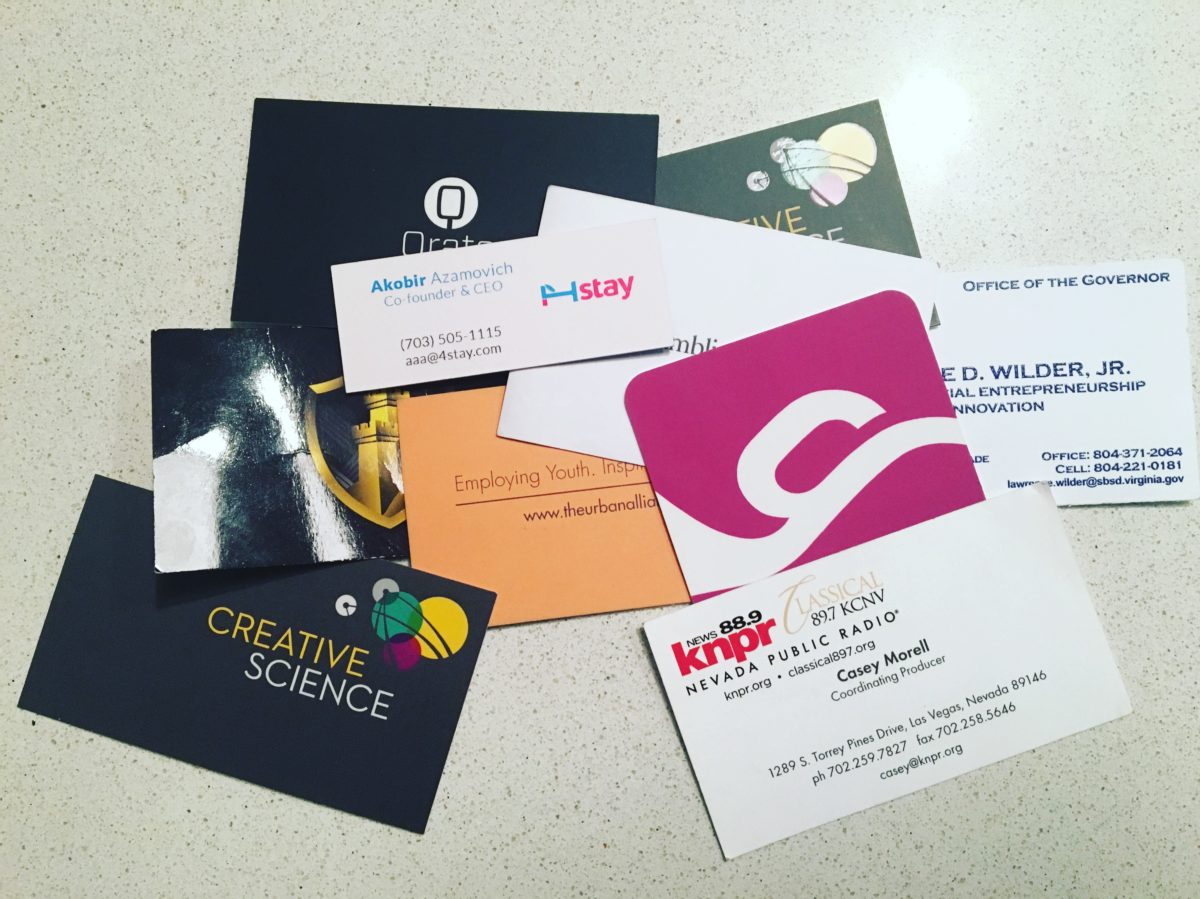The business card problem. You know the one I’m talking about — the one where there is basically no easy way to transfer information from the relatively ancient, paper-based business card to our world of digital interaction so you inevitably end up with a stack of useless cards sitting around way past their use-by date on the off-chance that you’re going to need one. You never do. The whole experience is disorganized and frustrating. I know.
And so, for years, technologists have been trying to solve this problem with the tools at their disposal. Some have tried to replace the business card completely with some kind of app, while others have focused on working with the business card, generally developing a kind of scanner.
But old habits die hard and nothing has managed to really take off.
Now some D.C-based entrepreneurs are giving it a go. Alistair Penny and Sukrit Sharma are the cofounders of dex, “an app that will enable people to build their networks.”

Screenshots of the dex app. (Image via iTunes)
The idea emerged when Penny was working in business development for a legacy production company. “I couldn’t for the life of me figure out how I was supposed to get the job done as a business development person,” he told Technical.ly in a recent conversation. Once you’ve made a contact then you can keep track of that person and keep in touch using a customer relationship management (CRM) software platform, Penny pointed out, but what about that initial meeting stage? Was there really nothing better, easier, more data-rich than the business card?
Dex is brand new to the app store and it works like this. You create a profile in the app, adding as much or as little information about yourself. When in a networking situation, you and another dex user can use the “dexchange” button to exchange contact information. This technology, the way two phones exchange information while also giving the interaction a time and geo stamp, is patent-pending.
Alternatively, users can go into “meeting mode” in dex and add a bunch of users all in the same location at once (they still have to approve your request to connect).
Penny and Sharma are fairly clear-eyed about the challenges their app faces. In order to beat the business card, Penny told Technical.ly, dex will need to be both easier and better. At the moment, Penny admitted, it’s not quite as easy. But it is, Penny argued, better. Why? More data.
This is where Penny feels past would-be solvers of the business card problem have gone astray. They’ve tried to replace the business card, instead of build on it. “Just seeing it as a digital business card is mistake number one,” Penny said. Business cards are fairly limited in the information they grant — a name, email address and phone number, perhaps. Dex, by contrast can give you more information about your new connection, as well as identify the time and place you met that person (helpful for those with a hard time remembering this stuff). This all sounds great, but it’s not entirely clear to Technical.ly that no other business card replacement app has gone the “better” route before.
In any case, to a large extent, dex depends on its users to actually supply the information that makes dex better than a business card. So how do Penny and Sharma plan to get (invested) users?
“It’s not going to become big overnight,” Penny said. “We need to have a plan, and we do have a plan.” (He declined to comment on what, precisely, that plan is, though.)
For the moment dex is free — future monetization will probably be some kind of freemium model, Penny said.
Before you go...
Please consider supporting Technical.ly to keep our independent journalism strong. Unlike most business-focused media outlets, we don’t have a paywall. Instead, we count on your personal and organizational support.
Join our growing Slack community
Join 5,000 tech professionals and entrepreneurs in our community Slack today!

The person charged in the UnitedHealthcare CEO shooting had a ton of tech connections

From rejection to innovation: How I built a tool to beat AI hiring algorithms at their own game

Where are the country’s most vibrant tech and startup communities?

